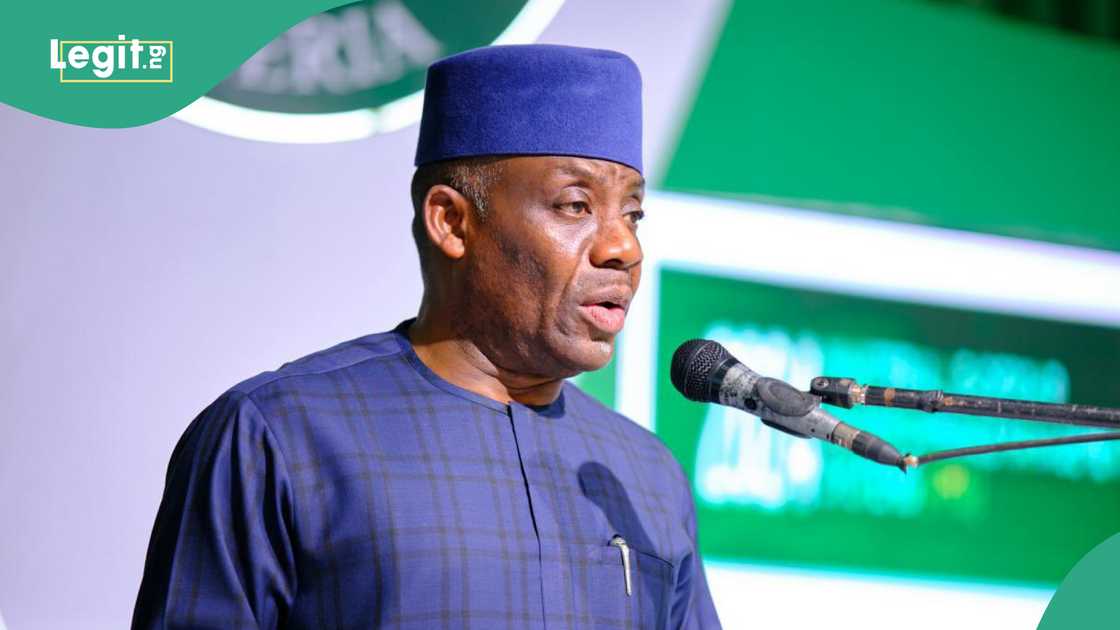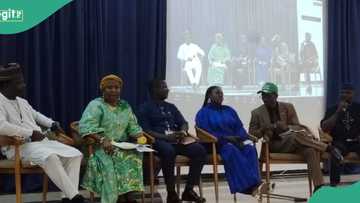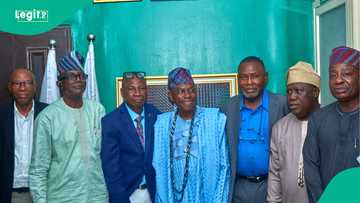Alausa Hailed as FG Launches New Curriculum to Ease Student Workload, Boost Skills
- The President Bola Ahmed Tinubu-led federal government has launched a new curriculum to ease student workload and boost skills
- The Minister of Education, Maruf Tunji Alausa, has been hailed for taking such a bold and progressive step for the development of education in the country
- A senior government official has highlighted the benefits of the new curriculum, as teachers will have clearer lesson plans
Legit.ng journalist Adekunle Dada has over 8 years of experience covering basic and tertiary education in Nigeria and worldwide
FCT, Abuja - The Minister of Education, Maruf Tunji Alausa, has been commended as Nigeria unveiled a sweeping overhaul of its national curriculum.
The federal government has reduced the number of subjects schoolchildren study and introduced compulsory digital literacy and trade skills.

Source: Facebook
The new curriculum is to modernise education and reduce student burdens.
Alausa said the reform would make learning “more focused and functional” by emphasising skills over memorisation.
In the words of one senior official who does not want their name disclosed, “this is about freeing children to learn meaningfully, freeing teachers to teach effectively, and freeing Nigeria to dream bigger."
Curriculum overhaul
The senior government official said for decades, Nigerian pupils have juggled 15 to 20 subjects, relying heavily on rote learning. Under the new system, set to begin in the 2025/26 academic session, the load will be cut to 9–10 subjects in lower primary, 10–12 in upper primary, 12–14 in junior secondary, and 8–9 in senior secondary schools.
Core and elective subjects
The official also explained that Senior secondary students will now take five compulsory subjects: English Language, General Mathematics, Citizenship and Heritage Studies, Digital Technologies, and one trade subject. They will then select electives in science, business, or humanities.
Science options include Biology, Chemistry, Physics, Agriculture, and Further Mathematics, while humanities include Nigerian History, Government, Literature, and Nigerian languages. Business candidates will continue with Accounting, Commerce, Marketing, and Economics.
Trade skills
Vocational training has also been streamlined. Instead of 30 loosely defined trades, students will now choose from six targeted skills: solar installation, fashion design, livestock farming, beauty and cosmetology, computer hardware and GSM repairs, and horticulture. These subjects will be assessed in national exams by WAEC, NECO, and NABTEB.

Read also
Another APC governor bans nursery, primary school graduation, introduces skills certificate policy
History and digital literacy
The reform restores Nigerian History as a stand-alone subject at the basic education level, alongside a stronger focus on civic studies. Digital literacy will become mandatory from Primary Four, signalling a shift toward preparing students for an AI-driven economy.
Implementation challenges
The government faces hurdles in teacher retraining, exam redesign, and providing infrastructure for vocational and digital instruction. Critics warn that without investment in facilities – such as solar equipment or livestock pens – the trades may remain theoretical.
Alausa said partnerships with industry and polytechnics would help bridge the gap.
The education minister added that the changes align Nigeria’s education system with global best practices in Finland, Singapore, and the UK.
Lighter loads, sharper skills
Parents are expected to benefit from lower textbook costs and reduced homework, while teachers will have clearer lesson plans.
Alausa said:
“We cannot prepare children for yesterday’s world. The future of Nigeria lies in the competence of its young citizens.”
Further review of Primary, JSS, SSS curriculum
Recall that Nigerians have called for the further review of the recently reviewed curriculum for primary, JSS, and SSS students.
Some Nigerians are demanding the expansion of foreign languages, including Chinese, Korean, Japanese, and others.
This came after the FG released how the new curriculum would take effect in the schools' resumes later in the month of September.
FG introduces AI, coding, others into new curriculum
In a previous story, Legit.ng reported that the federal government unveiled a bold new curriculum for secondary schools, with subjects like artificial intelligence, coding, and digital literacy.
The reforms aim to equip students with future-ready skills and align the education system with global standards.
Industry leaders and educators have welcomed the move, citing its potential to foster innovation, entrepreneurship, and technological competence among young Nigerians.
Source: Legit.ng




